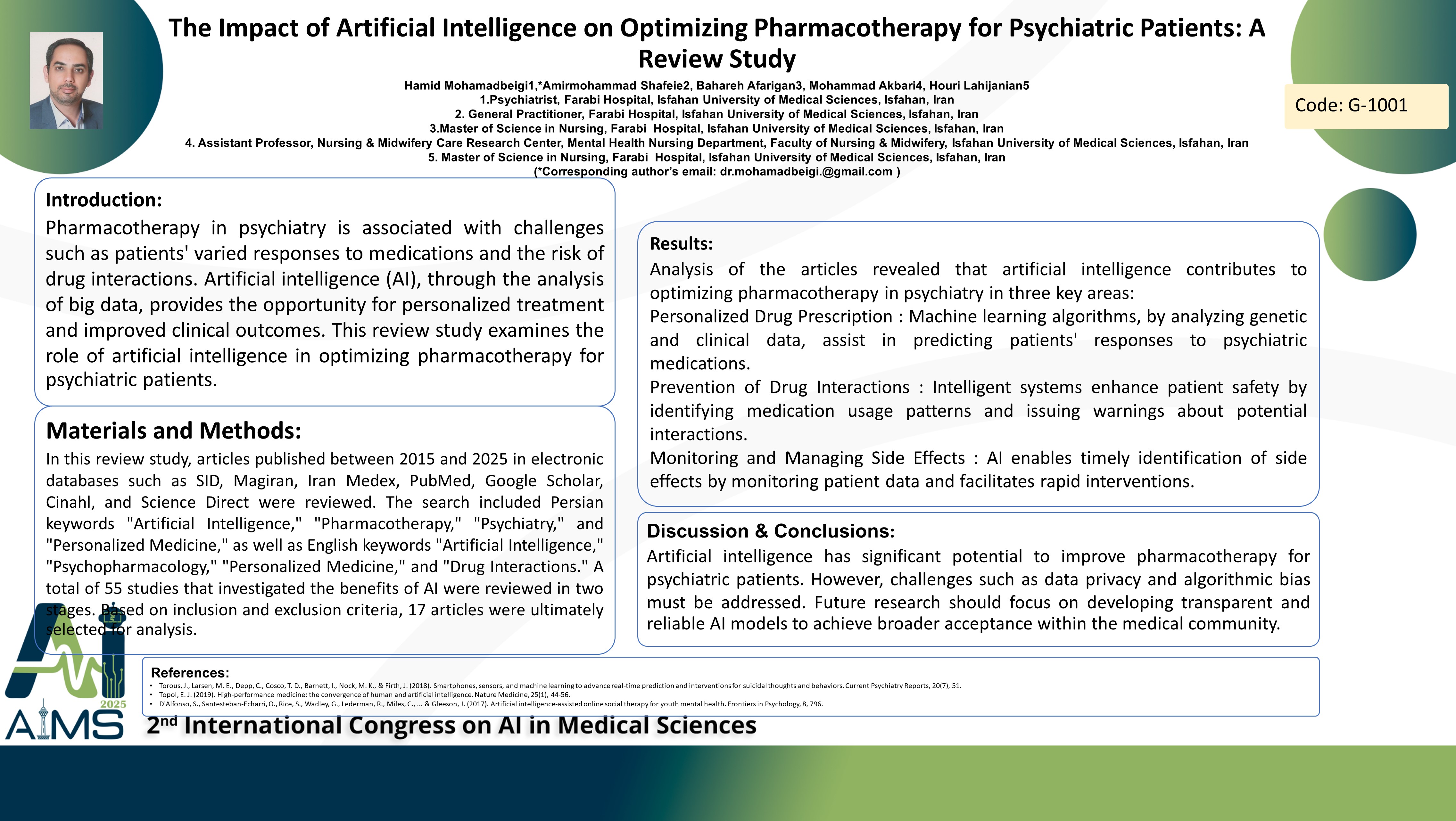The Impact of Artificial Intelligence on Optimizing Pharmacotherapy for Psychiatric Patients: A Review Study
Code: G-1492
Authors: Hamid Mohamadbeigi * ℗, Amirmohammad Shafeie, Bahareh Afarigan, Houri Lahijanian, Mohammad Akbari, Golnoosh Aghili
Schedule: Not Scheduled!
Tag: Biomedical Signal Processing
Download: Download Poster
Abstract:
Abstract
Background: Pharmacotherapy in psychiatry is associated with challenges such as patients' varied responses to medications and the risk of drug interactions. Artificial intelligence (AI), through the analysis of big data, provides the opportunity for personalized treatment and improved clinical outcomes. This review study examines the role of artificial intelligence in optimizing pharmacotherapy for psychiatric patients. Method : In this review study, articles published between 2015 and 2025 in electronic databases such as SID, Magiran, Iran Medex, PubMed, Google Scholar, Cinahl, and Science Direct were reviewed. The search included Persian keywords "Artificial Intelligence," "Pharmacotherapy," "Psychiatry," and "Personalized Medicine," as well as English keywords "Artificial Intelligence," "Psychopharmacology," "Personalized Medicine," and "Drug Interactions." A total of 55 studies that investigated the benefits of AI were reviewed in two stages. Based on inclusion and exclusion criteria, 17 articles were ultimately selected for analysis. Results: Analysis of the articles revealed that artificial intelligence contributes to optimizing pharmacotherapy in psychiatry in three key areas: Personalized Drug Prescription : Machine learning algorithms, by analyzing genetic and clinical data, assist in predicting patients' responses to psychiatric medications. Prevention of Drug Interactions : Intelligent systems enhance patient safety by identifying medication usage patterns and issuing warnings about potential interactions. Monitoring and Managing Side Effects : AI enables timely identification of side effects by monitoring patient data and facilitates rapid interventions. Discussion : Artificial intelligence has significant potential to improve pharmacotherapy for psychiatric patients. However, challenges such as data privacy and algorithmic bias must be addressed. Future research should focus on developing transparent and reliable AI models to achieve broader acceptance within the medical community.
Keywords
Artificial Intelligence, Pharmacotherapy, Psychiatry
